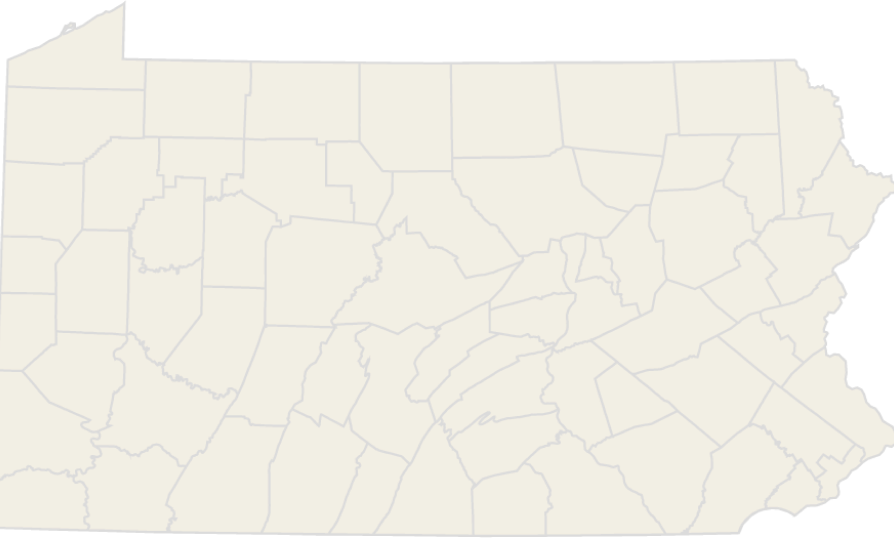
Context about 'Three Strikes' Laws in the U.S.
The criminal justice system in the United States has seen numerous reforms and legislation aimed at reducing crime and ensuring public safety. One such measure is the "Three Strikes Law," a controversial policy that exists in various forms across different states. In this article, we will focus on Pennsylvania's implementation of the Three Strikes Law, exploring its intricacies and consequences, and discussing how a skilled attorney, such as those at The Law Offices of Joseph Lesniak, LLC, can make a difference for individuals facing its harsh implications.
The Purpose of Three Strikes Laws
Three Strikes Laws were initially introduced in the United States in the early 1990s as a response to growing concerns about repeat offenders and a perceived need for more stringent punishment for those who repeatedly commit serious crimes. The central premise of these laws is to deter habitual criminals from continuing their criminal activities by imposing increasingly severe penalties for subsequent convictions.
The basic idea behind the "Three Strikes" concept is simple: after a defendant's third felony conviction, they receive a mandatory life sentence without the possibility of parole. The intention is to keep individuals who have demonstrated a consistent pattern of criminal behavior off the streets for good. However, the impact and consequences of such laws have sparked a contentious debate in the legal community and among advocates for criminal justice reform.
What Is the Three Strikes Law?: Overview and Specific Laws in Pennsylvania
Overview of Three Strikes Laws
While the general idea of Three Strikes Laws may appear consistent across states, the specifics can vary widely. Different states have enacted their own versions of the law, determining which offenses count as "strikes" and the sentencing outcomes for those found guilty of repeated felonies.
In Pennsylvania, the Three Strikes Law is designed to target individuals who repeatedly commit serious offenses. Specifically, the law states that after a defendant's third conviction for certain serious crimes, they will receive a mandatory life sentence without the possibility of parole. The crimes that qualify as "strikes" under Pennsylvania law include violent crimes such as murder, rape, and kidnapping.
Pennsylvania's Three Strikes Law: A Closer Look
Pennsylvania's implementation of the Three Strikes Law is more restrictive in comparison to some other states. The law is designed to target individuals who commit the most severe offenses, ensuring that only the most dangerous offenders are subject to its harsh penalties. To better understand how the law works in Pennsylvania, let's take a look at some key elements:
- Eligible Crimes: The law in Pennsylvania designates specific violent felonies as "strikeable" offenses. These crimes include, but are not limited to, murder, kidnapping, and sexual assault. A defendant must be convicted of three or more of these "strikeable" offenses to trigger the mandatory life sentence.
- Non-Violent Crimes: It's important to note that non-violent offenses, such as drug-related crimes or property crimes, are not subject to the Three Strikes Law. This means that individuals who have multiple convictions for non-violent offenses will not receive a life sentence under this law.
- Sentencing: Once a defendant is convicted of their third "strikeable" offense, the law mandates a life sentence without the possibility of parole. This means that the individual will spend the rest of their life in prison with no chance for release.
- Challenges and Criticisms: The implementation of Three Strikes Laws has faced criticism over the years. Critics argue that such laws lead to overcrowded prisons, disproportionately affect minority populations, and do not necessarily lead to lower crime rates. Some states have reformed or repealed their Three Strikes Laws in response to these concerns, but Pennsylvania's law remains in place.
Possible Consequences: What Three Strikes Mean for Defendants
The Three Strikes Law in Pennsylvania carries severe consequences for those who find themselves entangled in the criminal justice system. Understanding these consequences is vital for anyone facing charges that could potentially result in their third strike.
Life in Prison without Parole
The most significant consequence of the Three Strikes Law in Pennsylvania is the mandatory life sentence without the possibility of parole. This means that individuals convicted of their third "strikeable" offense will spend the rest of their lives behind bars, with no chance for early release or parole consideration.
Diminished Opportunities for Rehabilitation
The implementation of such harsh sentencing laws can have a discouraging effect on rehabilitation efforts within the prison system. When individuals know that they are facing a life sentence without parole, they may be less motivated to engage in rehabilitation programs, education, or vocational training, as they may perceive no incentive for self-improvement.
Overcrowded Prisons
One of the unintended consequences of Three Strikes Laws is prison overcrowding. With a significant number of individuals receiving life sentences without the possibility of parole, prisons become more crowded and expensive to maintain. This issue can put strain on the state's resources and limit its ability to focus on other important aspects of the criminal justice system.
Disproportionate Impact on Vulnerable Populations
Critics of Three Strikes Laws argue that these policies disproportionately impact minority populations and communities with fewer economic resources. This results in significant racial and socioeconomic disparities in sentencing, with some groups being more likely to receive life sentences for similar offenses. As a result, these laws have been challenged on both ethical and legal grounds.
Limitations on Judicial Discretion
The inflexibility of Three Strikes Laws can limit a judge's ability to consider the unique circumstances of each case. Judges may be required to impose a life sentence even if they believe a different punishment would be more appropriate based on the facts and circumstances of the case. This limitation on judicial discretion has also been a point of contention in legal circles.
Legal Defenses: How a Lawyer Can Help
Facing charges that could lead to a life sentence under the Three Strikes Law is a daunting and life-altering experience. However, it's important to remember that having a skilled attorney on your side can make a significant difference in your case. The Law Offices of Joseph Lesniak, LLC, is committed to providing the best possible defense for individuals facing the harsh implications of the Three Strikes Law in Pennsylvania.
Investigating the Case
A dedicated attorney will thoroughly investigate the charges against their client. They will review the evidence, scrutinize the prosecution's case, and identify any potential weaknesses or inconsistencies in the evidence presented.
Challenging Evidence
A skilled attorney can challenge the admissibility of evidence obtained unlawfully or through procedural errors. This can lead to crucial pieces of evidence being excluded from the trial, potentially weakening the prosecution's case.
Negotiating with Prosecutors
Experienced attorneys may be able to negotiate with prosecutors to secure reduced charges or plea agreements that carry less severe penalties. While the Three Strikes Law limits some aspects of negotiation, there may still be opportunities to achieve a better outcome for the defendant.
Exploring Alternative Sentencing Options
In some cases, an attorney may explore alternative sentencing options that could divert a defendant away from the life sentence mandated by the Three Strikes Law. This could involve seeking rehabilitation and treatment programs rather than imprisonment.
Filing Appeals
If a defendant has already been convicted and sentenced under the Three Strikes Law, an attorney can assist in filing appeals and challenging the conviction on legal grounds, such as ineffective counsel or procedural errors.
Contact an Experienced Three Strikes Lawyer at The Law Offices of Joseph Lesniak, LLC for a Free Consultation About Your Case Today
Pennsylvania's Three Strikes Law is a stringent policy designed to address repeat violent offenders. However, it carries significant consequences for those facing potential life sentences without the possibility of parole. The law's implementation has been the subject of debate and criticism due to its impact on prison overcrowding, its disproportionate effect on vulnerable populations, and its limitations on judicial discretion.
If you or a loved one is facing charges that could result in a third strike under Pennsylvania's Three Strikes Law, it is essential to seek the assistance of an experienced attorney who can provide a strong defense. The Law Offices of Joseph Lesniak, LLC, is here to help you navigate the legal complexities and work toward the best possible outcome in your case.
Contact our firm today to schedule a consultation and learn more about your legal options. Our team of dedicated attorneys is committed to providing the highest level of legal representation and will fight tirelessly to protect your rights and future. Don't face the consequences of the Three Strikes Law alone; let us be your advocate and guide you through this challenging legal process.

